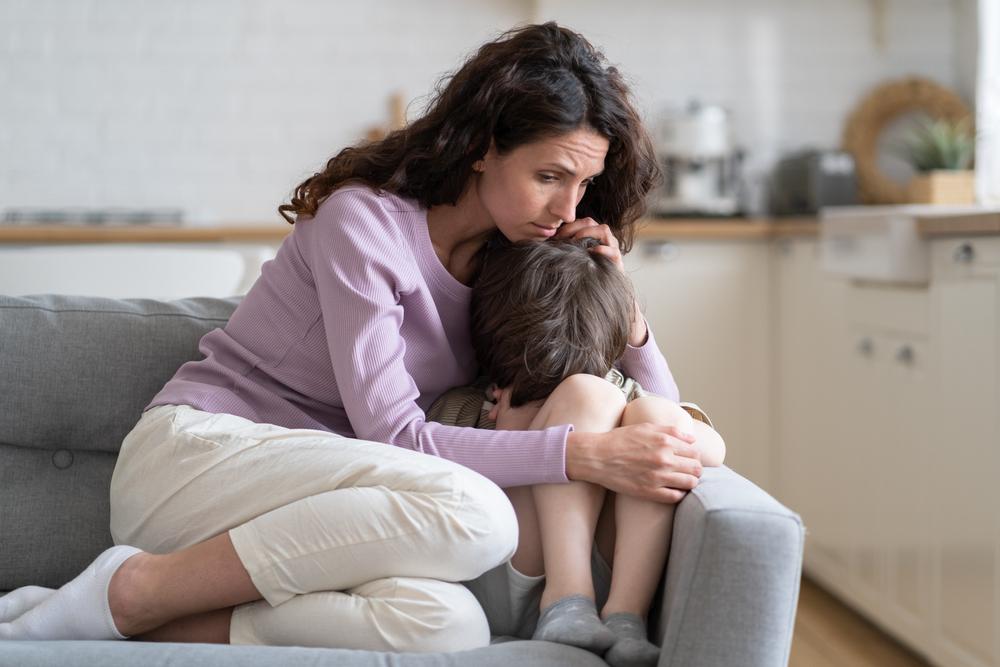 If you are a parent, you have probably found yourself in moments of frustration, where the sound of your own voice becomes suddenly unpleasant, even to you. Moments where what could have been teaching, became preaching. And rather than using gentle reminders confined by empathy, understanding, patience, and acceptance, our correction sounded more like accusation, judgment, and criticism, uncontained by all of the above. And then where our child may have once felt aligned with us, they now find themselves a far cry from wanting to be in our presence.
If you are a parent, you have probably found yourself in moments of frustration, where the sound of your own voice becomes suddenly unpleasant, even to you. Moments where what could have been teaching, became preaching. And rather than using gentle reminders confined by empathy, understanding, patience, and acceptance, our correction sounded more like accusation, judgment, and criticism, uncontained by all of the above. And then where our child may have once felt aligned with us, they now find themselves a far cry from wanting to be in our presence.
It is in these moments where we must be careful as parents — when we become infuriated by a certain repeated behavior, a disrespectful attitude, a misaligned set of values, or a choice that continues to leave our child existing outside the very mold we keep cutting for them.
It is in these moments when out of our immense commitment to raising a good human, we can easily go from being a supportive counselor in their lives to an opposing counsel placing them on trial for behavior they are still learning to manage. In our fury to prove our position, we often forget theirs. And in our desire to correct something we don’t like, we completely forget to connect to the very vulnerable spirit that stands broken right before us.
I once heard a teen tell me, “My parents have a way of always making me feel like a bad person, and I am not a bad person. They’re always telling me what I am doing wrong, and what I need to be doing. Don’t they ever see what I am doing right?”
Sometimes in all of our good intentions to raise good children, the change we set into motion within our child isn’t necessarily the change we are looking to create. Instead of having an “A-ha!” moment of reflection and turning back to behavior we deem acceptable, they reflect on the distance we have just created. They internalize the negativity, disappointment, and defeat, and rebuke from a standpoint of why they can never please us and why we don’t ever see their side of things.
So, the next time you want to correct something in your child, be intentional. Decide if it’s necessary, or if it could be ignored. How do we know? Consider whether it touches on an important value, or if it’s just an aggravating tenancy.
If it must be said, wait until you can share it gently and within a framework of understanding and helpful wisdom. Be sure in your correction that you stick to the behavior at hand, rather than letting the behavior extend to a character assassination that defines who your child is based on what they have done.
Lastly, because the magic ratio for any relationship is 5:1 positive to negative statements, strive to do your best to provide lots of encouragement, specific praise, and support outside moments of correction because, for every one complaint, we need five positive statements to make up for it!
Remember, our children are taught to value notions more by the environment we create for them, than by the things we say to them. Let us be mindful of building an emotional climate that will help our children buy into our values, rather than distance themselves from them.
 About the Author
About the Author
Dr. Roxanne Louh, a native of Gainesville, is a licensed clinical psychologist in Jacksonville, Florida, where she uses her extensive training in private practice with expertise in a variety of concerns, including mood disorders, anxiety disorders, marriage, and parenting issues, and eating disorders, body image awareness, and women’s issues. She strongly believes in the prevention of mental health issues through education and awareness. Dr. Louh has presented to national groups, universities, area high schools, and churches across the country and continues to dedicate much of her time to community-wide presentations, reaching the public through various news media, social media, radio, educational talks, and blogs. An established member of the American Psychological Association, she regularly makes appearances on local news show The Chat and contributes to a blog for the Greek Orthodox Archdiocese of America, entitled “Healthy Minds Healthy Souls.” Together, Dr. Louh and her husband, Fr. Nicholas Louh, an Orthodox priest, co-host “Live with the Louhs,” a weekly radio show that airs at 8 p.m. EST on Ancient Faith Radio. She has also co-written a book with her husband entitled Renewing You: A Priest, A Psychologist and A Plan, which addresses eight of the biggest challenges she sees people dealing with and tackles them from both a faith and psychological perspective. Follow Dr. Louh on social media at @thelouhs or receive her powerful daily inspirational messages by subscribing to TheLouhs.com/Subscribe. Dr. Louh lives in Jacksonville with her husband, Nicholas, and their two children, George and Gabriella.
















